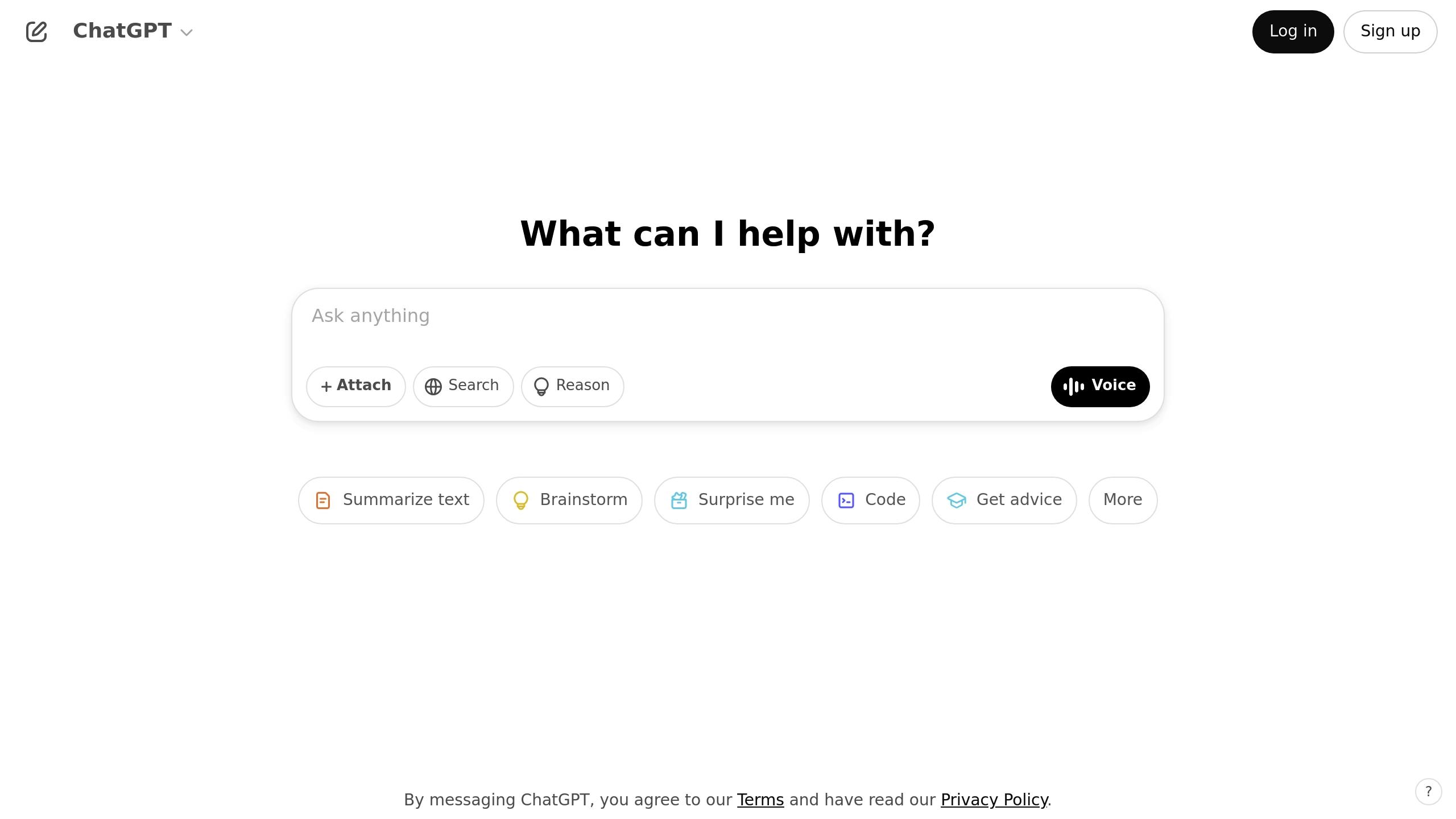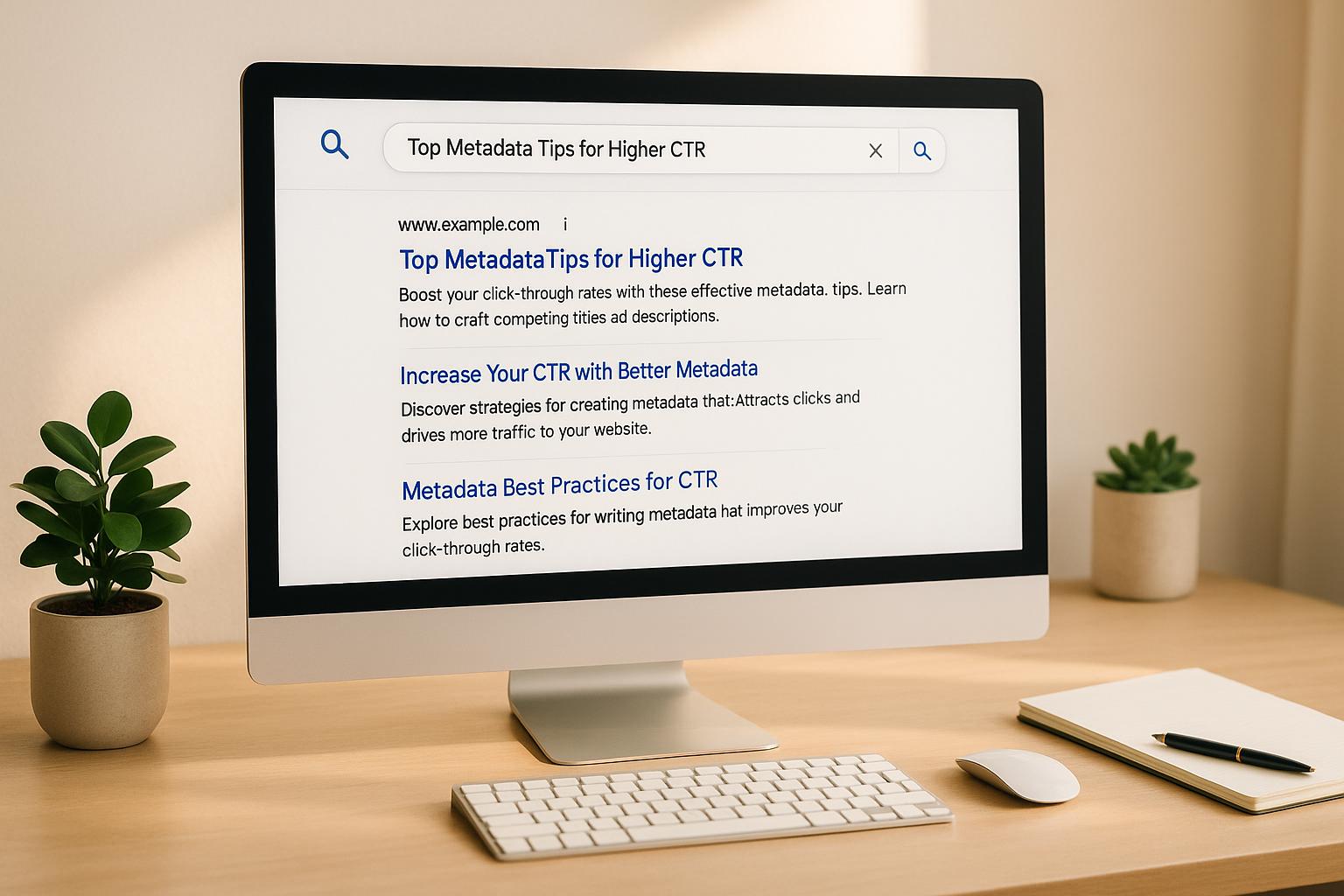Google's 2024 AI content policy changes are a game-changer for anyone creating content. Here’s what you need to know upfront:
- Quality Standards: AI-generated content must be original, relevant, engaging, and authoritative to rank well.
- Transparency Rules: You now need to clearly label AI-generated content and document which tools were used.
- Anti-Spam Measures: Google is cracking down on AI spam, fake reviews, and duplicate content.
Failing to comply could mean penalties like lower rankings or removal from search results. To stay ahead, focus on high-quality, user-focused content and disclose AI involvement clearly.
| Key Changes | Impact |
|---|---|
| Quality Control | Higher ranking for unique, helpful content |
| Transparency Requirements | Mandatory AI labeling |
| Anti-Spam Policies | Stricter penalties for manipulative content |
These updates prioritize trust and user experience. Stay compliant by using proper tools, following clear guidelines, and regularly updating your content.
Humanize AI Content: Rank #1 on Google with ChatGPT in 2024

Major Policy Changes for AI Content
Google's 2024 updates bring new standards for evaluating and ranking AI-generated content. These changes highlight Google's focus on promoting transparent, high-quality content in the evolving AI landscape.
New Anti-Spam Rules
To tackle AI-generated spam, Google has introduced stricter policies targeting three main areas:
- Content Manipulation: Automated tools now identify and penalize AI-generated content created to unfairly boost rankings.
- Domain Misuse: Improved systems monitor and flag duplicate AI-generated content across multiple domains.
- Reputation Abuse: Harsher penalties are in place for fake reviews and attempts to manipulate authority using AI tools.
These updates aim to raise the bar for content quality while ensuring fair practices.
"Transparency in AI-generated content is essential for maintaining user trust and ensuring compliance with evolving digital policies." - Jane Doe, Digital Marketing Expert
Content Quality Standards
The new standards emphasize that AI-generated content must genuinely benefit users. Here's a breakdown of the key requirements:
| Quality Criterion | Requirement | Impact on Rankings |
|---|---|---|
| Originality | Content must be unique and not reused across different platforms | High |
| Relevance | It should directly meet the user's search intent | Critical |
| Engagement | Content should encourage meaningful user interaction | Medium |
| Expertise | Must reflect authoritative knowledge on the subject | High |
Meeting these standards is essential for maintaining visibility in search rankings. But quality isn't the only focus - Google also stresses clear attribution.
AI Content Attribution Rules
Transparency is now a priority. Google requires explicit disclosure when AI tools are used in content creation. Here’s what publishers need to know:
1. Explicit Labeling
Content must clearly indicate AI involvement, either through meta tags or visible disclaimers within the text.
2. Source Documentation
Publishers are expected to keep detailed records of which AI tools were used and their role in the content creation process.
3. Transparency Requirements
Surveys show that 75% of users prefer clear AI attribution, which helps build trust and credibility.
These updates emphasize Google's dedication to fostering trust and maintaining high standards for AI-generated content.
sbb-itb-5be333f
Effects on SEO and Content Planning
AI Content Guidelines
Google's updated standards emphasize that AI-generated content must genuinely benefit users while meeting quality benchmarks. To align with these expectations, content creators should prioritize two main areas:
- Content Quality Checks: Ensure your content stands out by being unique, relevant, and aligned with E-A-T (Expertise, Authoritativeness, Trustworthiness) principles.
- User Intent Focus: Create content that directly addresses what users are looking for. Offer clear, actionable insights, cover topics thoroughly, and keep the information up to date.
Policy Violation Penalties
Google takes violations of its AI content policies seriously. Issues like failing to attribute AI-generated content or publishing low-quality material can lead to consequences such as lower rankings, removal from search listings, or even de-indexing. Staying compliant not only avoids these penalties but also supports better rankings and builds credibility with users.
SEO Advantages of Following the Rules
By sticking to these updated guidelines, you can improve your website’s visibility and user engagement. High-quality, user-focused content that openly acknowledges AI involvement can lead to better rankings, stronger user trust, and higher engagement rates. Plus, it minimizes the risk of penalties or manual actions from search engines.
To stay ahead, regularly refresh your content, track performance metrics, incorporate user feedback, and stay informed about policy updates. This approach helps maintain strong search visibility and keeps your audience engaged.
Tools for Policy Compliance
Meeting Google's stricter standards requires marketers to use effective tools for policy compliance. Staying aligned with Google's 2024 AI content policies means relying on trusted resources.
Top SEO Marketing Directory

The Top SEO Marketing Directory is a go-to platform for finding SEO tools and services designed to meet Google's updated policies. It offers expert advice and strategies to improve search rankings and ensure high-quality content. Their Premium plan, priced at $49/month, includes advanced SEO tools and agency listings, while the Enterprise plan provides customized solutions for larger needs.
While directories like this are helpful, AI content tools also play a key role in maintaining compliance.
AI Content Creation Tools
Modern AI content tools now come equipped with features to help meet new compliance standards. Many platforms offer automatic disclosure settings and improved content checks to align with Google's policies. Keep an eye on vendor updates to ensure the tools you use stay compatible with Google's evolving requirements.
Conclusion
Key Takeaways
Google's 2024 updates to its AI content policies introduce stricter requirements for quality, transparency, and attribution. These changes demand a shift in how businesses create and manage their digital content.
"The updates to our AI content policies are designed to ensure that high-quality, relevant content is prioritized in search results." - Google Spokesperson
What Businesses Should Do Next
To align with these policy updates, companies need to focus on crafting content that satisfies user needs while clearly indicating AI involvement. Here are three critical areas to address:
- Content Quality Checks: Regularly review and update content to meet Google's compliance standards.
- Clear AI Attribution: Develop straightforward processes to disclose when AI tools are used in content creation.
- Tool Selection: Use AI tools that adhere to Google's updated guidelines.


